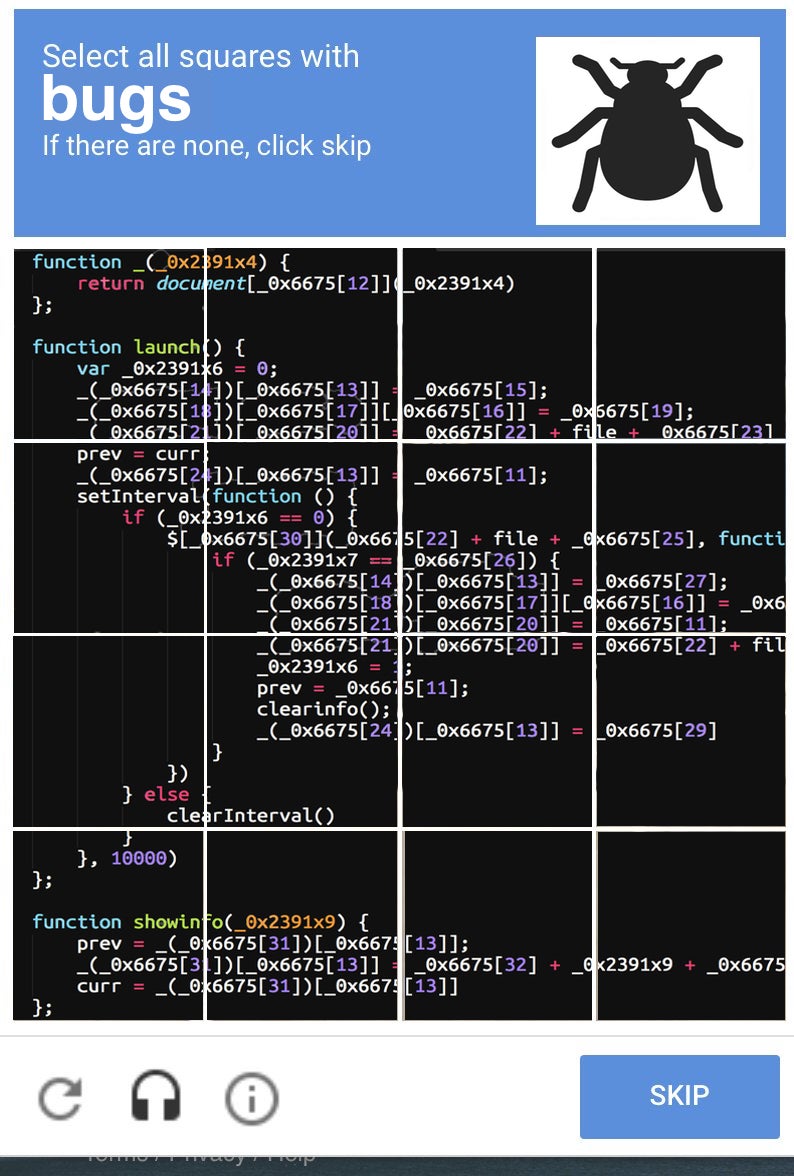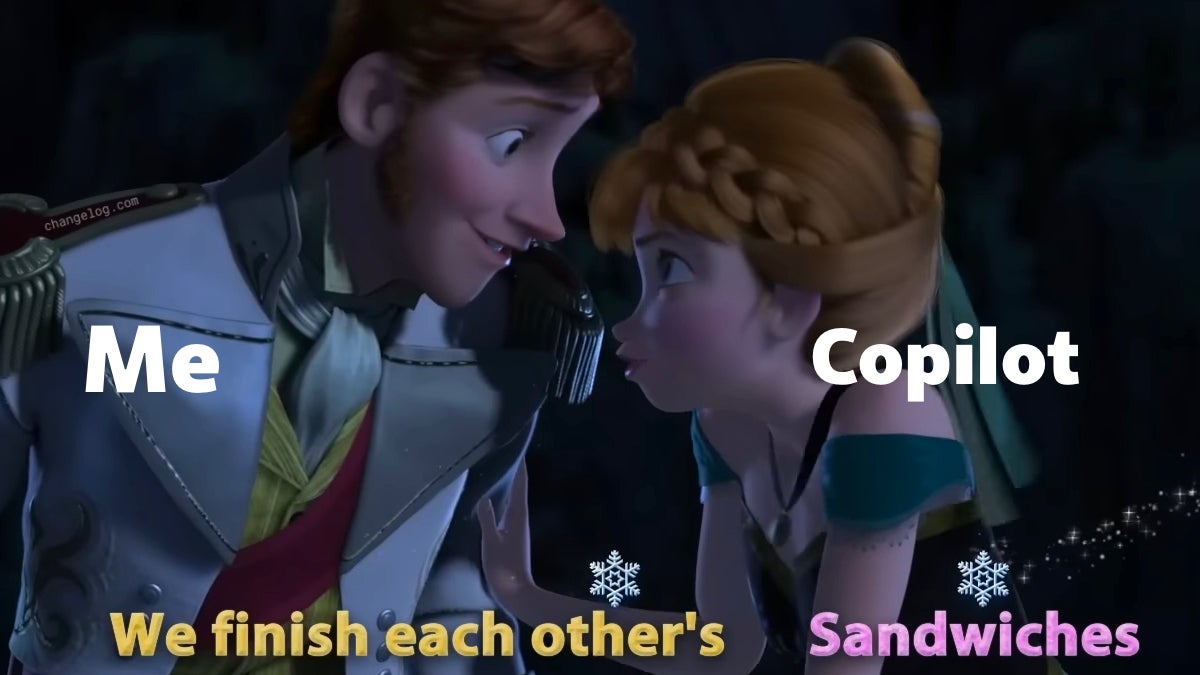Changelog News
Developer news worth your attention
Monday already? 👋
For the second time in three weeks, a beloved member of the software community passed away. This time we lost Kris Nóva to a climbing accident. Ashley Willis said it better than I can:
Kris was more than just a prominent figure in our industry; she was a beacon of inspiration in open-source. Her passion wasn’t just about writing code, but about bringing people together, breaking barriers, and making technology accessible to all. Kris’s vibrant personality and dedication to collaboration will be deeply missed, but her impact on the world of open-source won’t be forgotten. She has left a personal imprint on many of us, and her spirit will continue to inspire those who believe in the power of community-driven innovation. I will miss her so much. She was truly one of a kind.
Ok, let’s get into the news. (Audio Edition)
😵 CAPTCHAs are now utterly useless
It’s official: advancements in computer vision have rendered CAPTCHAs obsolete as new research shows AI bots are 15% more accurate than humans at picking which images have a [bridge|sign|bicycle] in them. I’ve surmised this for months now as we’ve been unable to ward off spam account creations on changelog.com no matter which shiny new CAPTCHA service we tried.
The researchers recruited 1,400 participants to test websites that used CAPTCHA puzzles, which account for 120 of the world’s 200 most popular websites. “The bots’ accuracy ranges from 85-100%, with the majority above 96%. This substantially exceeds the human accuracy range we observed (50-85%)”
😎 Meme Break
I created this 5 years ago and it still might be my best meme ever. TFW your career already peaked but you’re still slogging it out ’til the end 😆
📖 The OpenTF Manifesto
In the wake of last week’s big HashiCorp relicensing news, hundreds of concerned technologists signed a manifesto because:
In our opinion, this change threatens the entire community and ecosystem that’s built up around Terraform over the last 9 years.
The group’s goal is to ensure Terraform stays truly open source forever and they’re asking HashiCorp to switch the license back. If HashiCorp doesn’t do that, the fallback plan is to fork the legacy MPL-licensed code and maintain the fork in a foundation. This is akin to the OpenSearch fork of ElasticSearch, except that was (is?) largely the work of Amazon whereas this effort represents almost 100 different companies.
😔 Things you forgot (or never knew) because of React
Josh Collinsworth has perfected the craft of absolutely dumping on React in a convincing fashion. This time around he draws an analog to pop music and his once naive belief that “anything good inevitably became popular—and therefore, anything worth knowing would eventually come my way on its own.”
(I still believe this when it comes to memes, which are literally ideas that spread. So the best memes by definition are the ones that spread the furthest and eventually reach me. Right? Anyway, back to Josh and React.)
Assuming we were only talking about personal preferences, I’d never write a blog post arguing about what you like, or trying to change your mind. (Not at this age, anyway.) Who cares? If you enjoy it, have fun.
But unlike music or other subjective things meant for our own enjoyment, our choice of frontend tools has empirical, measurable effects on others.
His overarching point is to look beyond React, because you don’t know what you might be missing. He goes into extreme detail on why React is falling (or has fallen) behind and all the other stuff you should try instead.
Unsurprising to me (but maybe surprising to you), we’ve discussed literally all of these tools (often with their creators) on the JS Party podcast. That’s the next best thing (sometimes better if it saves you time) to trying all these for yourself.
🔮 The Future of Open Source: SaaS, the Final Frontier
Thanks to Sentry for sponsoring this week’s Changelog News 💰
On September 7th, Sentry is hosting a discussion with the CEOs of three SaaS companies that adopt an open source strategy for their core product. Peer Oke Richelsen from Cal.com, Yaw Anokwa from ODK & Jerrod Engelberg from Codecov. On the agenda:
- What open source means in the context of SaaS
- Why they operate their companies using open source
- Why we’re seeing a shift in SaaS companies adopting this model
- How you can apply similar approaches in your startup or company
This is a completely FREE event that you don’t want to miss. Register here.
💚 Work, Like, Love.
Mike Seidle shared some quick-but-powerful advice on building new software features:
Make it work. Ship it.
Improve it so people like it. Ship it.
Then improve more, so people love it. Ship it.
Two things pop out to me about this:
- Iteration is the key
- It needs to work right out of the gate
I’m also reminded of that meme about how to build an MVP.
🐘 Greenfield OSS projects should join Mastodon
Erlend Sogge Heggen urges new open source projects to join the Fediverse (by way of Mastodon):
Joining the fediverse is a lot like installing your first Linux distro. Nothing is quite as easy as what you’re used to; seemingly simple tweaks lead you down deep rabbit holes of community-curated knowledge spread across unofficial wikis and old-school bulletin boards.
But somehow it doesn’t feel all that laborious. That’s because you didn’t install Linux to save time. You entered the world of Linux (or WordPress, Node, Python etc.) because you got the sense that something is happening over there.
I like that analogy. And here’s the kicker (which I’ve found that to be quite true):
Permeating the whole experience is the deeply reassuring certainty that you are considerably more in control of your digital experience than you ever were before you took the leap.
🕹️ I Created the Nerdiest Game Ever
Pier-Luc Brault imagined a videogame where you are an operating system. You have to manage CPU cores, processes, memory pages and swap space. You have to make sure that no process starves, and to swap memory pages when necessary. Your goal is to avoid angering the user by being too slow.
He didn’t just imagine it, he built it and compiled it to Wasm so you can play it in your browser on itch.io
🎁 System Initiative is now open source
When we had Adam Jacob on the show in June he said System Initiative would be open source “soon” and he’s now delivered on that promise. Here’s how they’re going about it:
We are open sourcing all of the software used in System Initiative - there are no features held back, no competitive restrictions, and no special rights retained that would let us change the game in the future.
Read more about it in their open source FAQ
📶 Why You (Probably) Don’t Need to Fine-tune an LLM
Jessica Yao:
A lot of very smart people are experimenting with LLMs right now — resulting in a pretty jam-packed toolbox, acronyms and all (fine-tuning, RLHF, RAG, chain-of-thought, etc). It’s easy to get stuck in the decision paralysis stage of “what technical approach do I use”, even if your ultimate goal is to “build an app for X”….
People sometimes turn to a fairly involved technique called fine-tuning, in hopes that it will solve all of the above. In this post, we’ll talk about why fine-tuning is probably not necessary for your app.
The better our base LLMs become, the less we need to fine-tune them to a particular dataset/use case. That’s good news!
😎 Meme break
I have now tried and eventually uninstalled Tabnine, GitHub Copilot & Codeium. They just don’t “get” me (yet). You?
🛠️ Add these to your toolbox
- Outlines: a Python library to write reliable programs that interact with generative models (more like NumPy than LangChain)
- Opendream: a Stable Diffusion web UI “for the rest of us”. Demo here
- Jakt: a memory-safe systems programming language by the SerenityOS team that (currently) compiles to C++
- ytgif: a wrapper around yt-dlp and ffmpeg that creates a gif from a YouTube video
- Layerform: a Terraform wrapper that helps engineers build reusable infrastructure using plain Terraform files
- Datasette: Simon Willison brings his popular open source data tool to the cloud with a new SaaS hosting platform
🎧 ICYMI: Recent good pods from us
An aberrant generation of programmers – Our friend Justin Searls recently published a widely-read essay on enthusiast programmers, inter-generational conflict & what we do with this information. That seemed like a good conversation starter, so we grabbed Justin and Landon Gray to discuss.
Refined thinking – Jim (Hyphen) Nielsen joins Nick & myself for a fun conversation about language-level toll roads, when (and how) to quit, the stratification of social networking & the state of the world in publishing your thoughts on the internet.
30 years of Debian – Adam & I talk with Jonathan Carter (who’s on his fourth term as Debian Project Lead) all about our beloved Linux distro and its community’s epic 30 years of continued voluntary effort.
That’s the news for now, but we have an awesome episode of The Changelog coming up on Wednesday with Andreas Kling from SerenityOS!
Have a great week, send Changelog News to your friends if you dig it, and I’ll talk to you again real soon. 💚
–Jerod

